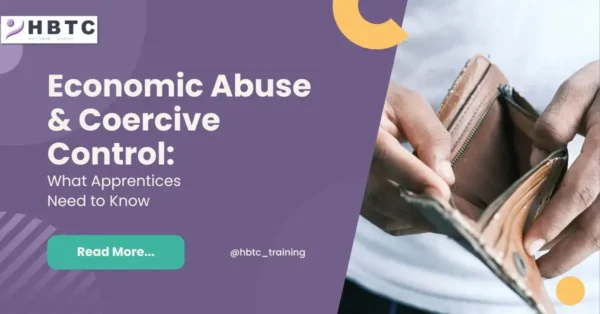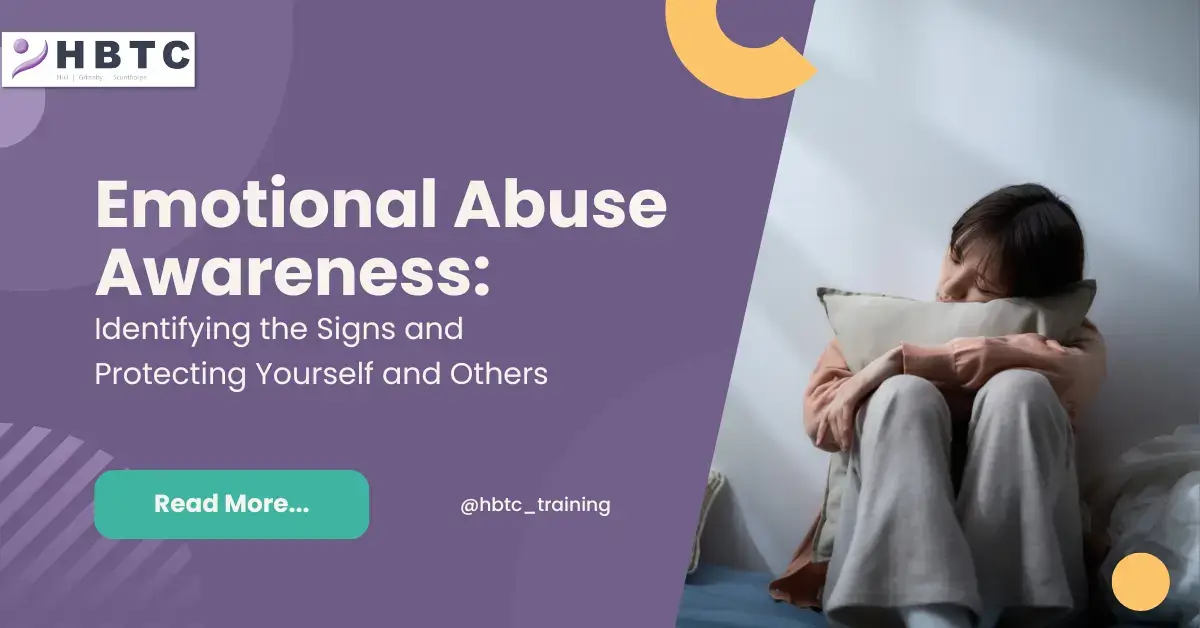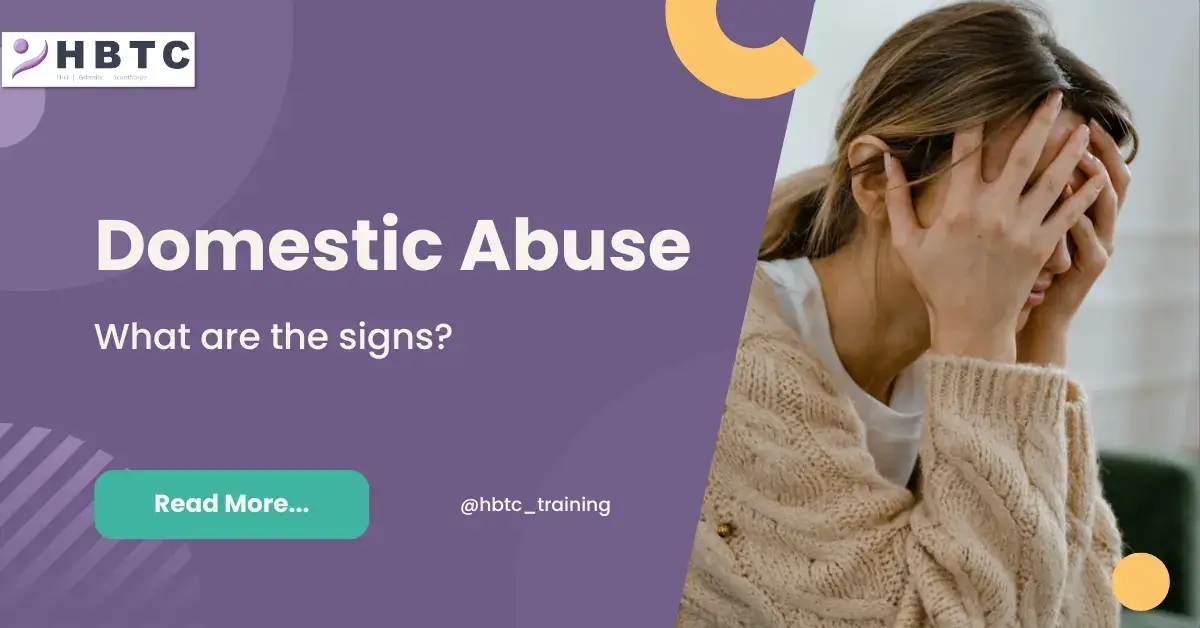Economic Abuse & Coercive Control: What Apprentices Need to Know
Starting your first job and earning your own wages is a huge step toward independence. You may be getting paid for the first time, opening a bank account, buying your own things, and making decisions about your future. For many people, this new independence feels exciting and empowering.
But for others, someone in their life, a partner, family member, friend, or even a housemate, might try to take that independence away. This is where economic abuse and coercive control can begin.
What is economic abuse?
Economic abuse happens when someone controls, restricts, or exploits your access to money or resources. That might mean money itself, but it can also include things like:
- Your phone
- Your transport (car, bus pass, petrol money)
- Your housing
- Work or education
- Items you own, such as clothing, laptops, or tools
Anyone of any gender, age, or background can experience this. It’s not always obvious, and it often happens slowly.
What is Coercive Control?
Coercive control is a pattern of behaviour where one person tries to take away another person’s freedom. It doesn’t need to involve physical violence. It can look like:
- “You can only see your friends if I say so.”
- “Give me your card, I’ll handle the money.”
- “Quit your job. If you loved me, you wouldn’t leave me alone all day.”
Economic abuse is a common tactic of coercive control, and it can continue even after a relationship ends.
Why this matters to Apprentices
You are:
- Starting to earn your own money
- Becoming more independent
- Likely paying bills such as a phone bill, for example, travel, rent, or groceries for the first time
Abusers often target people when they are financially vulnerable, inexperienced, or excited about independence, because it’s easier to gain control early on.
Signs of Economic Abuse
Economic abuse can be subtle, feel embarrassing to talk about, or disguised as “love”, “help”, or “protection”. Look out for these signs in your own life or in friends/colleagues:

Restricting Access to Money
- Being forced to hand over your wages
- Having to ask permission to buy basic items
- Someone is checking your banking app, receipts, or messages
- Being told you “Don’t need” your own bank account
- Your card, wallet, or valuables are being taken away
Interfering with Work
- Pressuring you to quit your job or apprenticeship
- Making you late so you get in trouble
- Constantly calling or texting while you’re at work and demanding replies
- Insisting on driving you and refusing if you don’t cooperate
Exploiting Your Finances
- Debts or bills taken out in your name
- Your partner, or housemate, is using your wages but not contributing
- Someone else is controlling your benefits or savings
- Your possessions are being sold, damaged, or taken
Controlling independence
- Saying you can’t afford to see friends
- Not allowing you to buy clothing, hygiene products, or food
- Preventing you from accessing a phone, transport, or laptop
People often think abuse means bruises.
Economic abuse means taking away the ability to leave, cope, or be safe.
How to spot it in someone else
A friend, colleague, or apprentice might:
- Never have money, even though they work full-time
- Seems scared to spend anything without permission
- Wear worn-out clothes or skip meals
- Say “my partner handles everything; I don’t see the bank account.”
- Quit a job they enjoyed for no clear reason
- Avoid social plans and give excuses that don’t fit
If something feels “off”, it probably is.
If this sounds familiar, you are not alone. Help exists, and many apprentices, adults, and young people have also lived through this experience.
Support
- National Domestic Abuse Helpline (24/7)
📞 0808 2000 247 - Financial Support Line for Victims of Domestic Abuse
📞 0808 196 8845 (Mon–Fri, 9am–5pm) - Men’s Advice Line
📞 0808 801 0327 - Galop (LGBTQ+ domestic abuse support)
📞 0800 999 5428 - Women’s Aid
- Citizens Advice
- Your bank
- If in immediate danger, contact the police on 999
If you’re an apprentice with HBTC, you can also contact one of our Safeguarding Officers, Amy or Chris, on 01482 211714. Or your Tutor; they’re trained to help, listen, and guide you to the right services safely and confidentially. For more information, click here:
No one should control your money, your work, or your choices.
You may also be interested in…

Emily Simpson
Emily is our Digital Marketing/Learner Engagement Apprentice and is involved with all things social media and content development. She is also responsible for attending career events and maintaining relationships with local schools and colleges.


